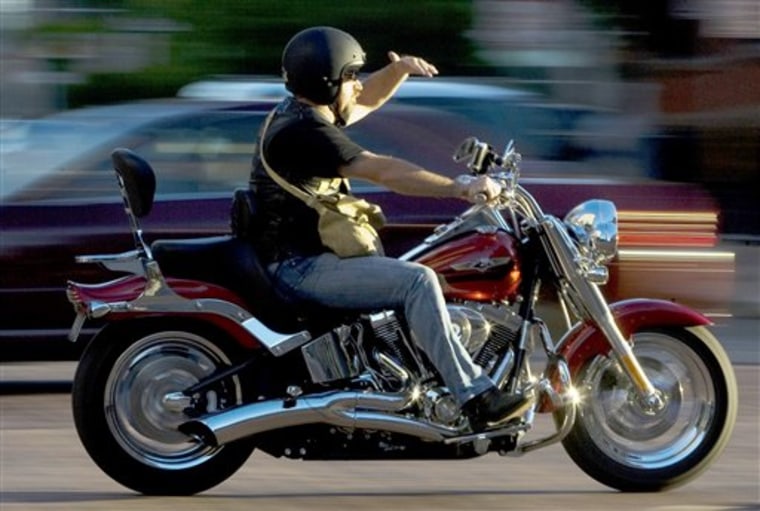Harley-Davidson Inc. said Thursday it will begin selling motorcycles next year in India, the world's second-largest motorcycle market, where the company hopes its iconic, heavyweight bikes will find a niche among the country's rising middle class.
The Milwaukee-based company said it has established a subsidiary near Delhi and has begun scouting the country for dealers.
"Given the rapid development of India's economy and physical infrastructure, this is exactly the right time to bring the world's greatest motorcycles to one of the world's largest motorcycling nations," said Mark Levatich, Harley's chief operating officer, in a statement.
India is the world's largest market for motorcycles behind China, but it is overwhelmingly dominated by smaller, inexpensive bikes used primarily for transportation, said Dilip Chenoy, director general of the Society of Indian Automobile Manufacturers.
It is also a market dominated by several well-entrenched Japanese and Indian manufacturers. Hero Honda, a joint-venture between Japan's Honda Motor Co. and India's Hero Group, holds the biggest market share among two-wheelers. Honda, Suzuki and Indian motorbike maker Bajaj Auto are also major players.
Still, Harley said the country's growing economy, rising middle class and expanded highway construction has created a market for leisure motorcycle riders.
"Motorbikes, scooters in India are family commuting bikes," Chenoy said. "They tend to be more robustly built and the focus is on fuel economy, but there is an increasing market for leisure and high-end bikes which is beginning to happen here in India."
The company said it has begun identifying initial dealers in Mumbai, Delhi, Bangalore, Hyderabad and Punjab State.
Harley's entry in India marks a major win for the motorcycle maker, which has been vying for a foothold in that market for years. The country of more than 1 billion people has experienced roaring growth in recent years, though its economy has cooled in the downturn. Growth for the fiscal year ended March slowed to 6.7 percent from 9 percent the previous year.
The company first launched plans to enter the Indian market in 2007, but the venture was delayed by two obstacles: emissions standards that hindered sales of heavyweight bikes and tariffs on imported motorcycles as high as 60 percent.
Spokesman Bob Klein said a change in Indian emissions standards has paved the way for the company's entry. He said the tariffs remain in place, but the company views demand as strong enough to overcome them.
Levatich said the company would continue to push for lower tariffs but did not want to risk missing out on the rapidly growing market.
"Waiting and continuing to work the tariff issue would have risked the market further developing within the leisure segment without our participation," Levatich said.
Harley has been pushing hard in recent years into overseas markets, where it hopes rising incomes and the company's strong brand identity will lure new customers and help offset flagging sales at home.
In 2008, motorcycle shipments in the U.S. fell 15 percent to 206,000 units while international shipments climbed 9 percent to 97,000. Harley shipped 32 percent of its motorcycles overseas in 2008, up from 27 percent in 2007.
The Asia-Pacific markets in particular have grown in importance for Harley. The company has been opening dealerships in China in recent years and has also sought to enter the Vietnamese market.
Tim Hoelter, Harley's vice president of government affairs, said the company still hopes to enter the Vietnamese market, but it continues to be hindered by tariffs as high as 90 percent.
Last year, Harley's then-CEO Jim Ziemer said in an interview "it'd be nice if we eventually get to a 50-50 split" between domestic and international sales. The company currently sells bikes in more than 70 countries.
Shares of Harley-Davidson rose 28 cents to $22.23 in midday trading on Thursday. The stock has gained 29 percent since the start of the year, as investors begin to see a recovery in demand after a wrenching drop in sales during the U.S. recession.
